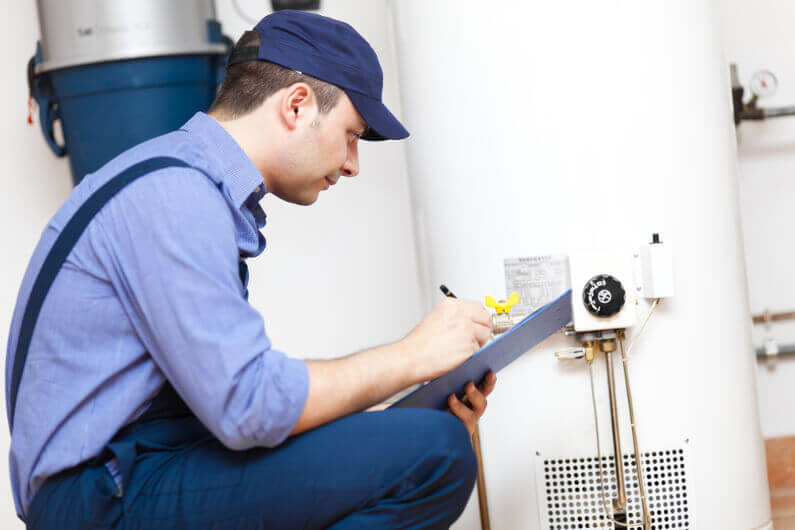5 signs your Hot Water Heating System is Dying
5 signs your Hot Water Heating System is Dying
Blog Article
Here in the next paragraph you'll find a lot of amazing help and advice when it comes to Is Your Water Heater About to Die?.
Sometimes, the lag in your heating system is just an outcome of bathing too much or doing lots of laundry. There are instances when your tools needs fixing so you can proceed delighting in warm water. Do not wait for busted water heaters to provide you a large migraine at the top of winter months.
Instead, find out the indication that indicate your hot water heater is on its last leg prior to it completely collapses. Call your plumber to do repair services prior to your device entirely stops working and also leaks anywhere when you notice these 6 red flags.
Listening To Strange Appears
When unusual seem like knocking and also tapping on your maker, this indicates sediment build-up. It belongs to sedimentary rocks, which are tough and make a lot of sound when banging against metal. If left neglected, these pieces can produce rips on the steel, causing leakages.
You can still conserve your water heater by draining it and cleaning it. Just be careful because dealing with this is harmful, whether it is a gas or electric unit.
Producing Insufficient Hot Water
If there is insufficient hot water for you as well as your household, yet you haven't changed your consumption practices, then that's the sign that your water heater is falling short. Generally, expanding households as well as an extra restroom indicate that you have to scale up to a larger device to fulfill your needs.
Nevertheless, when everything coincides, however your water heater instantly doesn't meet your warm water requirements, consider a professional examination since your equipment is not doing to standard.
Experiencing Fluctuations in Temperature Level
Your water heater has a thermostat, and also the water created need to stay around that same temperature level you establish for the unit. However, if your water comes to be also chilly or too warm all of a sudden, it can imply that your hot water heater thermostat is no longer doing its work. First, test points out by utilizing a pen as well as tape. Check to see later on if the noting actions on its own. If it does, it suggests your heater is unsteady.
Seeing Leaks as well as Pools
Check to pipes, connectors, as well as screws when you see a water leakage. You might just need to tighten up several of them. If you see pools gathered at the bottom of the heating system, you should call for an instant assessment due to the fact that it reveals you have actually obtained an energetic leak that might be a problem with your storage tank itself or the pipes.
Noticing Cloudy or Stinky Water
Does your water instantly have an odor like rotten eggs as well as look dirty? If you smell something unusual, your water heating unit could be acting up.
Aging Past Criterion Life Expectancy
If your water heater is more than 10 years old, you need to take into consideration replacing it. You may take into consideration water heating unit replacement if you recognize your water heating unit is old, coupled with the various other problems discussed over.
Do not wait for broken water heating systems to provide you a big frustration at the top of winter.
Your water heating system has a thermostat, as well as the water produced must stay around that very same temperature you set for the system. If your water becomes also chilly or too hot all of an abrupt, it might mean that your water heating unit thermostat is no longer doing its work. If your water heater is even more than ten years old, you need to consider changing it. You may take into consideration water heater substitute if you know your water heating system is old, coupled with the various other issues pointed out above.
Recognizing the Signs of a Damaged Water Heater
Winter may be mostly behind us but having hot water in our homes is a necessity year-round. A broken water heater can be a time-consuming and costly problem.
Recognizing the signs of a water heater in distress, and knowing what to do about it, is the best way to avoid a full-blown water heater "meltdown."
Sediment buildup, rust, and high water pressure are some of the most common causes of water heater failure. Improper installation or equipment sizing are other commonly found issues. A leak can occur near the supply line which can cause damage to dry wall or flooring.
Like any appliance, frequent checks can prevent your water heater from becoming a big problem. Try to set an annual reminder to check for water pooling around your water heater and to tighten any loose fittings you might find. The quicker the issue is resolved, the less damage it will cause in the end.
If you do find signs that your water heater is broken or about to burst, the first thing to do is to shut it off. For gas water heaters, twist the dial at the top of the thermostat from ON to OFF. If it’s an electric heater, switch the circuit breaker to OFF.
Once the water heater is turned off follow these steps:
Turn off the water supply. Completely drain the water heater. Open the pressure relief valve. Rinse the water heater with cold water when the unit has finished draining. https://armstrongcomfort.com/Blog/things-that-can-cause-your-water-heater-to-break

Hopefully you enjoyed our topic about When Should You Replace Your Hot Water Heater?. Thank you so much for spending some time to read our piece of content. Feel free to take a moment to distribute this blog posting if you enjoyed reading it. I am grateful for your time. Come back soon.
This Site
Report this page